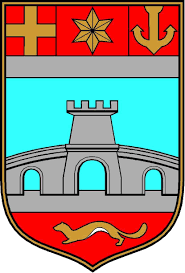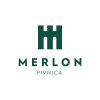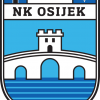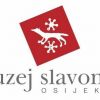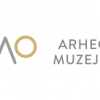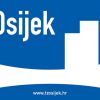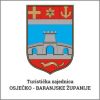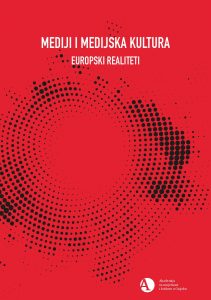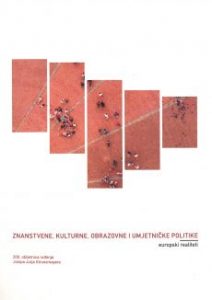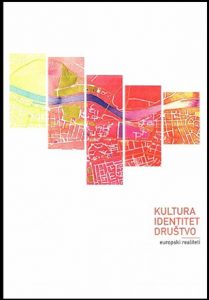Academy of Arts and Culture in Osijek is organising
4th International Scientific Conference – European Realities
(Osijek, 12th – 13th December 2019)
Patronage of
Croatian Academy of Sciences and Arts
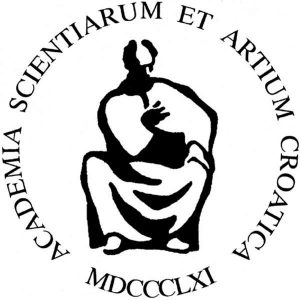
Conference Proceedings Movements – European Realities
International scientific conference European Realities is fourth in continuation scientific conference that started in 2013. The conference is engaged in interdisciplinary research and analysis of cultural, educational, artistic and scientific policies in the European environment, as well as their consequences on specific aspects of contemporary social and cultural context. The first meeting, held in 2013, was mainly devoted to the role of national identity in the context of the European Union, and the second meeting, held in 2015, dealt with the issue of cultural, educational, artistic and scientific policies in the context of the 200th anniversary of the birth of Josip Juraj Strossmayer. The third conference, which took place in 2017, emphasized the modern media and media culture.
Overall theme of the meeting to be held in 2019 on the Academy of Arts and Culture in Osijek, Department of Culture, Media and Management is MOVEMENTS, in a broad sense. The theme is related to inevitable adjustments of culture, management, creative industries, media and public communications in general to digital environment.
In other words, the question isn’t will we adjust to new cultural, media and economic trends but rather what is the mode of this adjustment and with which far-reaching consequences. Digital revolution, social media, fake news, cultural production as a supplier led process and many other current social and cultural phenomena must also encourage academic community to take a scientific and analytical approach to face the growth of so called influencer-driven culture and the omnipresent “University of YouTube”; denouncing and calling to the responsibility of social media and broader, internet platforms where they have to prove they care about the truth and serious journalism or will be properly forced to do so by European regulation. Art, science and culture also need adjustments to new ways of closing the loop of artist, audience, people and place, respecting at the same time the creative processes and the need to understand the market forces that are leading it. The rise of self-employed workers in cultural and creative industries, especially in the design and media industries needs to be mentioned as well as the fact that their career raise is not led by money but rather by its impact on the world.
The answers to questions how to adjust depend on a collaborative and flexible approach, but also on the emerging new collaborative spaces. In this sense, it is precisely the movements in new directions, innovative and attractive solutions and more provocative reflections that will strengthen the synergy between activities in culture, economy, especially cultural and creative industries and public communications, enabling the establishment of a stimulating research platform to be summarized in the fundamental goals of our gathering:
- Observe media and public communications in the context of the public sphere, different decision making and implementation processes; in relation to its economic potential and opportunities that media offers or through symbolic practices and orientation on meanings that they transmit through media content; as an arena in which different disciplinary traditions and methodological basics in media research can collaborate and exchange knowledge, with the analysis of current and future trends, developments and media phenomena as an aim. This responds to the conference thematic unit entitled Media and Public Communication in Political, Economic and Cultural Environment.
- Scientific, economical and media aspects of culture and arts synchronically and diachronically examine within the fields of culture and arts and through research in the scope of regional culture, cultural geography, cultural anthropology, cultural tourism, cultural identity, cultural capital, aesthetics, ideology, religious culture, sociology of culture, cultural memory, heritage and space identity, etc. The modalities of facing the new challenges in culture and tracing current trends, such as the strong digital technology interventions in the everyday life culture as well as in the culture and arts research will be presented within the conference thematic unit Culture and Arts – Scientific, Managerial and Media Aspects.
- Within the third conference aim and conference thematic unit entitled Cultural and Creative Industries: The Urban Regeneration and Economic Growth Drivers the main intention is to analyse and compare the cultural and creative industries as well as other related industries economic conditions, to identify external and internal factors necessary for achieving dynamic development, to analyze the influence on Croatian economy and European Union as a whole and to identify further development potentials and directions precisely because the cultural and creative industries are the urban regeneration and economic growth drivers, which is supported by data like the growth of employees, realized income, exports, number of freelance workers, new ways of doing business. Aside from employing a significant number of young new generation Z employees, the goal is not just profit, but above all impact.
Some of the discussion topics within the conference thematic units are:
- Information disorder, misinformation’s, fake news, censorship… new regulation and new responsibilities
- User-generated media content and concept of civil journalism
- The issue of No limits culture
- Public sphere in digital surrounding
- In (equities) in access, and digital divide
- Media socialization and media literacy – the future and trend of development
- Audience and practices of participation in media
- Ideologies in media, manipulation and propaganda
- Media discourses: vicarious and participatory
- Public relations as text and profession
- Freedom of the media protection in digital age
- The concept of postdigital age: are new media still new?
- Regional culture – emotion, tradition, brand
- Cultural and artistic aspects of emotions
- Intercultural (non) communication
- Vernacular values in culture and arts
- Literature and other arts
- Media identities, from stars to selfies
- Cultural representation and power in media
- Popular culture in media
- Cyber culture or breaking boundaries
- The concept of virtual
- Digital cultural assets legal protection in information society
- Culture and arts of diaspora, immigration, refugees
- Culture and Arts, Management and Communications: an educational aspects
- Man – computer – man: the issue of interaction design within the digital information space
- The future/trends and projections of cultural and creative industries developments
- The influence / non-conventional practices and digital marketing
- Digital transformation
- Institutional and corporate contribution and foreign partnerships (project and alternative financing)
- Business modelling and financing in digital era
- Developments – shaping and adapting organizations to a dynamic environment (establishment, financing and management)
- Creative economy – creative class
- Media management
- The changing publishing industry
- Reputation economy
- The European legal framework of cultural and creative industries
- Media archaeology and information heritage
- (Post)digital life of museum collections
Plenary sessions
Dubravka Oraić Tolić, F.C.A., Croatian Academy of Science and Arts, Croatia
Prof. Antonio Spadaro, PhD, Pontifical Gregorian University, Italy
Professor Emeritus Vlado Obad, Faculty of Humanities and Social Sciences Osijek, Croatia
Organizers /Co-organizers
>>> Academy of Arts and Culture in Osijek, Croatia
![]()

>>> Faculty of Education, Osijek, Croatia

>>> Faculty of Humanities and Social sciences, Croatia
![]()
>>> Univerzita Sv Cyrila a Metoda Trnava, Faculty of Mass Media Communication, Slovakia
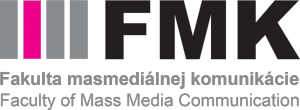
>>> Hochschule der Medien Stuttgart, Germany
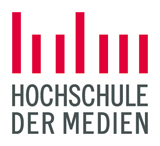
>>> Vytautas Magnus University, Academy of Education, Lithuania
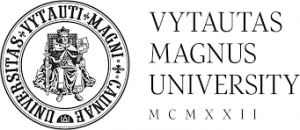
>>> Complutense University of Madrid, Faculty of Information Sciences, Spain
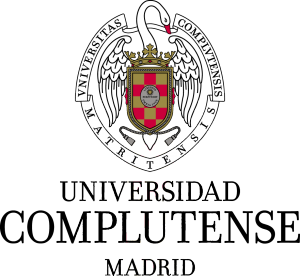
>>> Politécnico do Porto, Portugal
![]()
____________________________________________________________________________________________
Partner
Sponsors / Donors
Institut dentalne implantologije i tkivne regeneracije dr.sc. Stjepan Siber
Turistička zajednica Grada Osijeka
Turistička zajednica Osječko-baranjske županije
_____________________________________________________________________________________________________
Organizational board
Ass. Prof. Tatjana Ileš, PhD. (Madam Chair)
Ass. Prof. Borko Baraban, PhD.
Ass. Prof. Iva Buljubašić, PhD.
Ass. Prof. Marta Borić Cvenić, PhD.
Ass. Prof. Marija Šain, PhD.
Maria Inês Ribeiro Basílio de Pinho, PhD., prof.
Luka Alebić, PhD.
Mirna Sabljar, PhD.
Barbara Balen, mag. cult.
Snježana Barić-Šelmić, mag. cult.
Marina Čepo, dipl. iur.
Maja Haršanji, mag. oec.
Antonija Matić, mr. sc.
Tomislav Levak, mag. cult.
Toni Podmanicki, mag. oec.
Scientific and programme board
Prof. Krešimir Nemec, PhD., F.C.A., Croatia
Prof. María José Cavadas Gormaz, PhD., Spain
Prof. Martin Engstler, PhD., Germany
Prof. Boris Alexander Kühnle, PhD., Germany
Prof. Burkard Michel, PhD.,Germany
Prof. Uwe Eisenbeis PhD., Germany
Prof. Maria Carmen Salgado Santamaría PhD., Spain
Prof. Lars Rinsdorf, PhD., Germany
Prof. Miguel Ángel Ortiz Sobrino, PhD., Spain,
Prof. Mercedes Zamarra López, PhD., Spain
Prof. Jacinto Gomez Lopez, PhD., Spain
Assoc. Prof. Željko Pavić, PhD. Croatia
Assoc. Prof. Ivana Đurđević Babić, Croatia
Assoc. Prof. Lucija Ljubić, PhD. Croatia
Ass. Prof. Ivana Bestvina Bukvić, PhD., Croatia (chair)
Ass. Prof. Marina Đukić, PhD., Croatia
Ass. Prof. Jasmina Đurašković, Serbia
Ass. Prof. Rasa Nedzinskaitė, PhD., Lithuania
Ass. Prof. Ivica Šola, PhD., Croatia
Ass. Prof. Ján Višňovský, PhD., Slovakia
Andrej Brník, PhD., prof., Slovakia
Dáša Mendelová, PhD., prof., Slovakia
Maria Inês Ribeiro Basílio de Pinho, PhD., prof., Portugal
Martin Solík, PhD., prof., Slovakia
Guidelines
>>> Registration form European Realities 2019
>>> Paper Guidelines_European realities 2019
Conference fee
Until November 25th – 500,00 kn / 70,00 €
PhD students – 400,00 kn / 60,00 €
Conference fee includes participation in conference and other organized events, conference promotional materials, refreshments during breaks, Conference Proceedings. Each participant can have only one article in conference. Payments should be done until November 25th 2019 by direct bank transfer at the following account:
Academy of Arts and Culture in Osijek
- P. Svačića 1f, Osijek
IBAN: HR7323600001102689236
OIB: 60277424315
Obligatory details to be included:
- name of the participant,
- purpose of payment – Conference fee,
- date of payment.
>>> Important dates and communication contacts
Important dates
- Abstract submission: November 5th 2019 (extended)
- Abstract acceptance notification: October 10th 2019
- Conference fee payment: November 25th 2019
- Conference 12th and 13th December 2019
- Full paper submission and Statement of authorship and originality of the paper submission: March 15th 2020
The papers not delivered within the defined dates will not be send to review process or published in the conference proceedings.
Conference proceedings in English will be submitted for evaluation to databases Web of Science and EBSCO (please note that the selected texts have to meet all requirements related to academic texts in English; the highest quality of professional translation is required).
The official conference languages Croatian/ English
The International editorial board receives exclusively unpublished papers in Croatian or English. All papers will be double-blind reviewed by respectable domestic and international reviewers. The editorial board reserves the right to adjust the article and / or seek adjustment to the standards of the journals and spelling of the Croatian or English language.
Free use of published articles for educational and other non-commercial purposes is permitted, with appropriate sources highlighted.
Conference e-mail for abstract submission kmm@aukos.hr
Communication contacts
Ivana Bestvina Bukvić, Assistant Professor (ibbukvic@unios.hr; 091 449 42 00)
Marina Đukić, Assistant Professor (mdjukic@unios.hr; 095 909 30 88)
Tatjana Ileš, Assistant Professor (tiles@unios.hr; 098 811 909)
Conference assistant contacts
Marina Čepo, dipl. iur. (mcepo@aukos.hr; tel: 098 167 91 59)
>>>Locations and Accommodation information
Previous conferences and Proceedings
>>> Conference Proceedings “Mediji i medijska kultura – Europski realiteti” 2017
>>> Conference Proceedings “Kultura, identitet, društvo – Europski realiteti” 2013


